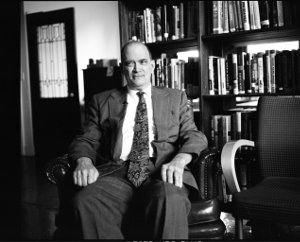
The U.S. National Security Agency (NSA) has been in hot water for the last few weeks, as whistleblower Edward Snowden exposed a massive online spying system that has been vacuuming up huge amounts of communications data from U.S. and foreign citizens. Over half-a-million people have rallied against the warrantless spying, and demonstrations took place on the ground yesterday, Independence Day.
But Snowden is far from the first whistleblower; in fact, Techdirt claims that the battle against overly broad court orders for spying goes back to 1790 and the creation of the Fourth Amendment. And the sounding of the alarm over NSA surveillance has been going on for at least the last 10 years.
History of whistleblowing
The NSA surveillance machine originates with William Binney, the brilliant NSA analyst behind "ThinThread," a version of the algorithm that the intelligence agency uses for its spying activities. However the NSA's version has been stripped of all the privacy protections Binney had built in. Binney resigned from the NSA in 2001 in protest at what he suspected was the misuse of his work, but the spying continued. In September 2002 he filed a complaint with the Pentagon's inspector general, in collaboration with fellow analyst J. Kirk Wiebe, computer scientist Ed Loomis, and Diane Roark, a member of the Select Committee on Intelligence which oversees the NSA. Still nothing was done.
In the face of such disregard for the law, blowing the whistle seemed like the only remaining option. In 2006 Mark Klein, a retired AT&T communications technician, publicly exposed the NSA spy room which copied all communications that went through AT&T's network and sent them to the spy agency. The government quickly tried to quash the investigation, citing national security concerns, and President Obama later granted Big Telecom immunity from any involvement in the warrantless spying program.
The spying program was again exposed in 2010 when Thomas Drake, a senior executive at the NSA and a colleague of Binney, publicly outed the misuse of Binney's creation. He was swiftly indicted under the Espionage Act.
Data too vast to use
Snowden's revelations publicly vindicated the claims of the concerned individuals who have spoken up before him, unable to stand by and watch civil liberties being trampled on. For its part, the U.S. government has attempted to silence Snowden by charging him with espionage. Although insiders who expose government misdeeds should be afforded some protection under the Whistleblower Protection Act which was finally signed into law late last year, we've already seen government moves to limit its use. For example, Bradley Manning, one of the most well-known whistleblowers of the last decade, will likely not be able to use this defence.
Binney has spoken up again in the wake of Snowden's revelations, giving historical context to these developments and highlighting an important criticism: the NSA can't find the needles in the ever-increasing haystacks of data, "so they store it all in the hope that down the road they might figure something out and they can go back and figure out what's happening and what people did. It's retroactive analysis." The massive NSA data centre in Utah has been designed to do just that.
So not only is the privacy of Americans and innocent international individuals being invaded, but it's not even helping to prevent the realization of any threats because there's just too much data. What the spying program is doing is ensuring that, somewhere down the line, when the NSA has the processing power to actually sift through these volumes of information, anything we did or said ten years ago could be retroactively dragged up and pointed to as evidence of potential future wrongdoing in crimes that perhaps haven't been committed yet. It's the dream of Minority Report-style preemption. And we all know how well that turned out.
In response, our friends over at Fight for the Future, in partnership with the Internet Defense League, held a day of action yesterday -- on the anniversary of America's Independence -- demanding that the government "Restore the Fourth" and guarantee Fourth Amendment protections for online communications, to prevent warrantless spying.
Add your voice to the call for an end to secretive, warrantless government spying. ![]()
Read more: Politics, Science + Tech














Tyee Commenting Guidelines
Comments that violate guidelines risk being deleted, and violations may result in a temporary or permanent user ban. Maintain the spirit of good conversation to stay in the discussion.
*Please note The Tyee is not a forum for spreading misinformation about COVID-19, denying its existence or minimizing its risk to public health.
Do:
Do not: